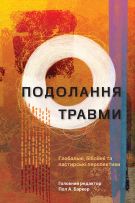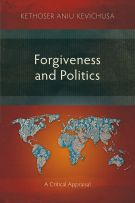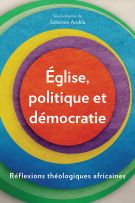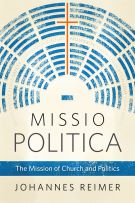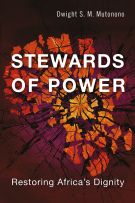| ISBN: | 9781783684854 |
|---|---|
| Imprint: | Langham Global Library |
| Format: | Paperback |
| Dimensions (mm): | 229 x 152 x 12 |
| Publication Date: | 28/02/2019 |
| Pages: | 230 |
| Language: | English |

Dark Days of Authoritarianism
To Be in History
The history of the Philippines is a long and complex one but the stories and reflections in Dark Days of Authoritarianism, from remarkable individuals who were willing to stake their lives for freedom, shed light on life under the martial law instituted by President Ferdinand Marcos from 1972 to 1981, and up to the peaceful popular uprising of 1986. This book not only covers the social, economic and political conditions across the country during martial law but also how those conditions affected ordinary people personally and spiritually. Many of the contributions illustrate the strength and determination of Philippine women to create a better society despite being met by great adversity and the importance of Christian faith for sustaining the lives of those who suffered and survived this tumultuous period. This book provides important lessons for a new generation facing the menace of authoritarianism today, wherever they are, to fight for democracy and resist any attempts to diminish people’s freedom.
Endorsements
This book will humble, encourage and enlighten all who continue to struggle today in the Philippines and in other parts of the world with political repression and the non-fulfilment of political dreams.
Vinoth Ramachandra, PhD
Secretary for Dialogue & Social Engagement, IFES
What happened to the Philippine people from the 1970s till now is relevant to the world at large, especially for those struggling in the post-colonial era in Africa, Latin and South Americas, and Asia.
Wing Tai Leung, PhD
Founding President, Lumina College, Hong Kong
Former General Secretary, Breakthrough Youth Ministry
This is actually a global phenomenon. It’s a book urgently relevant.
Marcelo Vargas A.
Centro de Capacitación Misionera, Bolivia, Latin America
Three decades after the ruthless rule of Ferdinand Marcos ended, this diverse collection of personal essays gives a revealing and timely insight into the dark days of martial law in the Philippines, the subsequent “peoples’ power revolution” and ongoing consequences in the 21st century for the first Southeast Asian nation to declare itself a democratic republic. These are important stories of struggle, resilience and faith amid a convoluted interplay of ideological politics and social change.
Rev Tim Costello, AO
Chief Advocate, World Vision Australia
The longing for freedom and for social justice lie deep in the human psyche. This moving book tells us the story of true events in the Philippines, and how different groups sought to bring about change. In particular, it shows how committed Christian men and women can seek the good of their society, the power of prayer, and the grace of God. A prophetic voice for our times.
Rose Dowsett
Missiologist
Dark Days of Authoritarianism: To Be in History is simply a remarkable work. Its style – testimonies and reflections of people from diverse social and professional backgrounds and divergent ideological commitments from a very dark period in the history of the Philippines – make it a compelling read. It is amazing how their story mirrors our story in the dark days despotic rule in Africa in the 1970s and 1980s.Dark Days of Authoritarianism is relevant today, not least for us in Africa, who, like the Philippines, are faced with the resurgence of authoritarianism.
Bishop David Zac Niringiye, PhD
Author and Civic-Political Activist
Senior Fellow, The Institute of Religion, Faith and Culture in Public Life
Table of Contents
- By Way of a Prologue
- Melba Padilla Maggay
- Part I: Years of Authoritarian Rule
- 1 – The Awakening of Miss Goody Two Shoes
- Elizabeth Lolarga
- 2 – Life under Authoritarianism: Why It Should Never Happen Again
- Mary Racelis
- 3 – The NatDem Front: A Historian Looks Back
- Fe B. Mangahas
- 4 – Truth in a Revolution: Notes from the Underground
- Mario I. Miclat
- 5 – A Peek from behind the Bamboo Curtain
- Alma C. Miclat
- 6 – Uncle Sam behind the Scenes: A View from the Corridors of Power
- Willie B. Villarama
- Part II: Days of People Power
- 7 – Snap Elections 1986
- Melba Padilla Maggay
- 8 – Seventy-Five Long Hours
- Adrian Helleman
- 9 – Onward, Soldiers of Faith
- Rolando Villacorte
- 10 – Diary from the Barricades
- Melba Padilla Maggay
- 11 – The Darkest Moment
- Rolando Villacorte
- Part III: The Morning After: Views from the Margins
- 12 – Thoughts on the Aftermath
- Willie B. Villarama
- 13 – A Nonviolent Revolution
- Adrian Helleman
- 14 – On Historical Babies, Paradigms and Miracles
- Melba Padilla Maggay
- 15 – A Gift for Millennials
- Mary Racelis
- Epilogue: Putting an End to Our Unfinished Revolutions
- Melba Padilla Maggay
- About the Contributors





